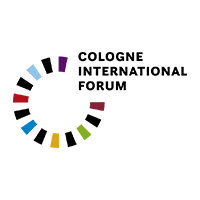Project Members of the Subproject 3
Stefan Collignon
Stefan Collignon is research professor at Chulalongkorn University, Bangkok, (competitive track) and visiting professor at the European Institute, London School of Economics, where he taught from 2001 to 2005. During 2005-2007 he was Visiting Professor at Harvard University. From 2007 to 2022 he taught as Professore ordinario at Sant’Anna School of Advanced Studies, Pisa. His research has focussed on European monetary economics, and the political economy of regional integration. Having contributed to the creation of the euro, he worked 1999-2000 as deputy director general at the German Treasury. He has recently published several books on the transforming economy of Myanmar and presently works on a new book with the title The Political Economy of Liberty and Money.
Safiya Galal
Safiya Galal is a Lecturer in Economics at the British University in Eygpt. She has taught Comparative Economic Systems, Applied Economics, Statistics, Labour Economics, Money and Banking, Monetary and Fiscal Policy. Previously, she held the position of an Economic Researcher and Project Manager Assistant in Support to the Egyptian European Association Agreement Unit at the Ministry of International Cooperation.
Safiya Galal earned her Ph.D. degree in Economics from the Faculty of Economics and Political Sciences, Cairo University in 2023. In her Ph.D., she worked on financial and social inclusion in the Southern- Mediterranean Countries. Focusing on the role of financial inclusion in the economic empowerment of disadvantaged groups and its role in localizing Sustainable Development Goals in the Euro-Mediterranean Region.
She earned her master’s degree in Euro-Mediterranean Studies (Air Transport Economics) from the Faculty of Economics and Political Sciences, Cairo University in 2015.
Markos Farag
Markos Farag is a doctoral researcher at the Faculty of Management, Economics, and Social Sciences at the University of Cologne, where he conducts research on the econometric analysis of energy markets. Markos holds a B. Sc. and an M. Sc. in Economics and Statistics from Cairo University (Egypt). In 2017-2018, he studied a semester as an Erasmus student at the University of Padova (Italy), focusing mainly on macroeconomic theory and advanced econometrics.
Anna Sobiech
Anna Lucia Sobiech is a Lecturer at the Center for Macroeconomic Research, University of Cologne. Prior to joining the University of Cologne, she was an Associate Lecturer in Banking and Finance at the University of St Andrews. She is a member of the Centre for Responsible Banking and Finance (CRBF) at the University of St Andrews and the Global South Study Center (GSSC) at the University of Cologne.
After graduating in Japanese and Management (Bachelor) from SOAS and Birkbeck College, Anna worked as a financial analyst and research director in the U.S. and Germany. Her passion for banking research drew her back to academia. She studied for an MSc in Finance and Management and a PhD in Banking at the University of St Andrews. She was awarded the Santander 600 Scholarship for her PhD.
Anna’s research and teaching interest include empirical financial intermediation, bank regulation, and corporate finance. Her research has appeared in the Journal of Corporate Finance, Journal of Financial Stability, Financial Accountability & Management and other leading journals in finance and management.
Francis Zau Tu
Francis Zau Tu is from Myanmar/Burma. Currently, he is doing research with Chiang Mai University as a research fellow in their Myanmar Scholars at Risk Program focusing on issues related to Myanmar migrants, IDPs and refugees along the Thai-Burma border. He is also joining in the international research cluster (IRC) “Conflict-induced displacement” (CID) organized by Prof. Dr. Michaela Pelican Dr. Thilo Zimmermann from the University of Cologne (2023-2024). Francis will contribute to project 3 on the integration of Burmese refugees in the border region into the Thai economy, especially regarding the fieldwork in the border region. Now, he is also preparing for a PhD proposal at the University of Cologne, Germany. The working title of his thesis is “China’s Influence on Myanmar’s Economy With a special focus on Kachin state”. Ever since 2011, when fighting resumed between the Burmese military and Kachin Independence Army in northern Myanmar displaced around 120,000 people, he has dedicated himself to human rights and peacebuilding. He has been working with civil society organizations, which focus on human rights research and advocacy, good governance and, legal support. Through civil society organizations, as well as independently, he has engaged in research on topics related to human rights, governance, Chinese investments, federalism, humanitarian issues, armed conflict, IDPs, and drugs issues and presented the research findings to members of parliament under the former civilian government. Before covid-19 pandemic and the coup, he also travelled a lot to Europe and South East Asia to present research findings as a part of advocacy. His main focus in Myanmar had always been to improve the situation of people, with the NGOs that he did build up, he tried to build links between academia and civil society. Unfortunately, everything changed last February in 2021, when the military coup plunged his country into violent social unrest, upheaval, and economic collapse.
